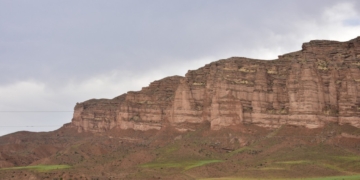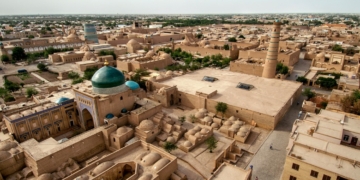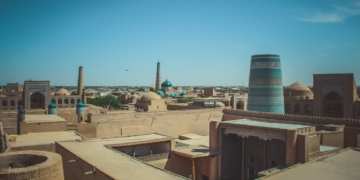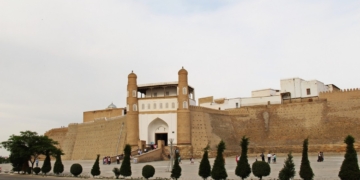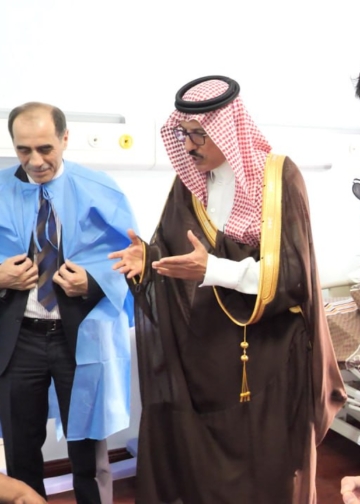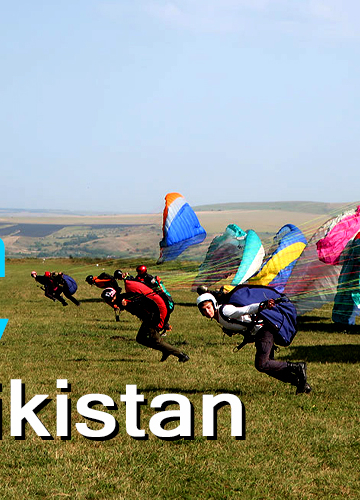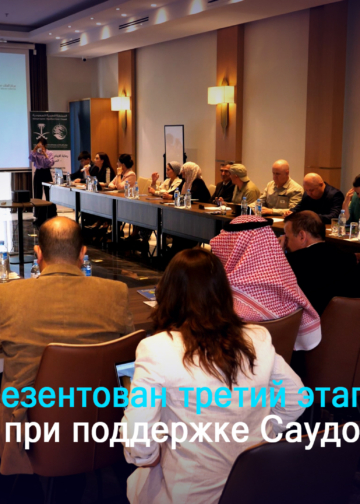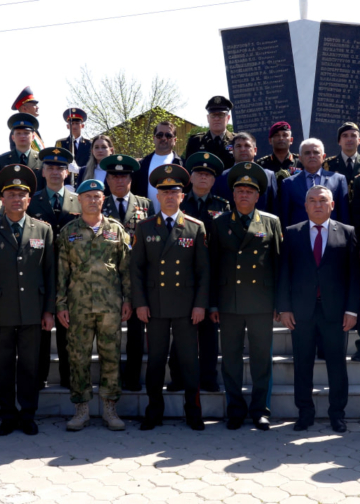id: 58721
date: 3/30/2006 11:23
refid: 06DUSHANBE575
origin: Embassy Dushanbe
classification: UNCLASSIFIED
destination:
header:
VZCZCXRO6885
PP RUEHLN RUEHVK RUEHYG
DE RUEHDBU #0575/01 0891123
ZNR UUUUU ZZH
P 301123Z MAR 06
FM AMEMBASSY DUSHANBE
TO RUEHC/SECSTATE WASHDC PRIORITY 7072
INFO RUEHDBU/AMEMBASSY DUSHANBE 8236
RUEHVEN/USMISSION USOSCE PRIORITY 1535
RUCNCIS/CIS COLLECTIVE
RUEHBS/AMEMBASSY BRUSSELS PRIORITY 0021
RUEHBJ/AMEMBASSY BEIJING PRIORITY 1507
RUEHRL/AMEMBASSY BERLIN PRIORITY 1492
RUEHIL/AMEMBASSY ISLAMABAD PRIORITY 1459
RUEHBUL/AMEMBASSY KABUL PRIORITY 1405
RUEHLO/AMEMBASSY LONDON PRIORITY 1450
RUEHNE/AMEMBASSY NEW DELHI PRIORITY 1420
RUEHFR/AMEMBASSY PARIS PRIORITY 1339
RUEHKO/AMEMBASSY TOKYO PRIORITY 1263
RHEHAAA/NATIONAL SECURITY COUNCIL WASHINGTON DC
RUEAIIA/CIA WASHDC
RHEFDIA/DIA WASHINGTON DC
RUEKJCS/SECDEF WASHINGTON DC
RUEKJCS/JOINT STAFF WASHDC
RHMFISS/HQ USEUCOM VAIHINGEN GE
RHMFISS/HQ USCENTCOM MACDILL AFB FL
RHMFISS/HQ USSOCOM MACDILL AFB FL
RUCNDT/USMISSION USUN NEW YORK PRIORITY 1047
RUEHNO/USMISSION USNATO PRIORITY 1488
RUEHBS/USEU BRUSSELS PRIORITY 0840
—————— header ends —————-
UNCLAS SECTION 01 OF 02 DUSHANBE 000575
SIPDIS
SIPDIS
STATE FOR SCA/CEN, EUR, DRL
E.O. 12958: N/A
TAGS: PREL, PGOV, PHUM, KDEM, KIRF, UK, UZ, TI
SUBJECT: OSCE CHAIRMAN DE GUCHT BRIEFLY VISITS DUSHANBE
DUSHANBE 00000575 001.2 OF 002
1. (U) Sensitive but
unclassified. Please handle accordingly.
Not for public Internet.
2. (U) SUMMARY: Visiting OSCE Chairman-in-Office de Gucht
raised the draft NGO and religion laws with President Rahmonov,
pressed for BBC to be re-registered for FM broadcasts in
Dushanbe, and discussed prison conditions. During a briefing
for OSCE member ambassadors, de Gucht told the Uzbek Ambassador
OSCE will never compromise its support for human rights. END
SUMMARY.
3. (U) OSCE Center Dushanbe
arranged for visiting Chairman in
Office (CiO) Karel de Gucht to brief ambassadors of OSCE member
countries March 30. De Gucht had
just meet separately with
Foreign Minister Nazarov and President Rahmonov, and planned a
brief meeting with members of civil society before an afternoon
departure for Afghanistan.
4. (U) De Gucht said the goals
for his visit were 1) to visit
the OSCE Center and meet the staff; 2) to introduce his CiO
priorities, including better equilibrium among the OSCE’s three
dimensions; and 3) to press for a more open society, progress on
the path toward democracy, and free and fair elections.
«WE WILL NOT COMPROMISE ON HUMAN RIGHTS»
5. (SBU) During the very brief
question-and-answer period, the
Uzbek Ambassador asked if de Gucht planned during his
chairmanship to do anything to respond to the CIS recommendation
from at least two years ago that OSCE decrease its «obsession
with human rights» and do a better job of balancing the three
dimensions. De Gucht replied
firmly that he is willing to be
flexible, taking into account that democracy is a process and
that each country has its own reality, but he will be guided by
OSCE’s clear principles that must be observed, including the
independence of its component elements like ODHIR. He added,
«Yes, OSCE needs to change, but the CIS countries need to
change, too. More equal attention
to OSCE’s three dimensions
means greater attention to the other two dimensions, not less
attention to democracy and human rights.
OSCE will never
compromise its support for human rights.»
NGO LAW — NOT UNTIL NEXT YEAR
6. (SBU) De Gucht said one of his
strongest talking points with
both Foreign Minister Nazarov and President Rahmonov had been
about the proposed new NGO law.
He said he cannot understand
why this has become an issue in Tajikistan and several other CIS
countries. It’s a highly
retrograde movement that violates CIS
countries’ OSCE commitments.
Restricting or interfering with
the work of NGOs is «unacceptable.» De Gucht said President
Rahmonov assured him Parliament will not consider a new NGO law
until after the November presidential election.
RELIGION LAW — UNDER INTERNATIONAL REVIEW
7. (SBU) Responding to a question
by the Ambassador, de Gucht
said he also raised the current draft of the new religion law.
OSCE Head of Mission Couanon added OSCE Dushanbe is meeting with
all confessional groups in Tajikistan and has already sent the
draft law to OSCE experts for review and comment. Swiss
Cooperation Office Head Zuest noted a parliamentary committee in
Berne is reviewing the law and plans to send its commentary
directly to President Rahmonov.
BBC WILL BE REGISTERED, BUT MUST SUBMIT ITS DOCUMENTS
8. (SBU) Another point de Gucht
said he raised was
DUSHANBE 00000575 002.2 OF 002
re-registration of BBC to resume FM broadcasts in Dushanbe.
President Rahmonov assured him as soon as the Ministry of
Communications receives BBC’s re-registration documents, it will
be back on the air «the next day.» De Gucht said Foreign
Minister Nazarov had harrumphed that he himself could fill out
the forms overnight and cannot understand what’s taking BBC so
long. UK Charge d’affaires Belof,
looking embarrassed,
explained that BBC had taken some time to decide whether it
should give in to the demand to re-register, and then had to
call a full meeting of the BBC board of directors to discuss the
matter, but hoped to submit it’s re-registration package by the
end of April.
PRISONS NEED HUMANITARIAN ASSISTANCE
9. (SBU) De Gucht briefed he also
raised prison conditions.
The Ambassador noted the Unites States is considering whether
some of his medical assistance can be used for prisons, and
added international assistance could perhaps begin to pry open
the door of the Tajik prison system for the International
Committee of the Red Cross.
Swedish Charge d’affairs Lagus
noted the Swedish International Development Agency is
considering humanitarian assistance for Tajik prisons. De Gucht
suggested OSCE Dushanbe could become the coordination point for
prison assistance.
HOAGLAND
=======================CABLE ENDS============================
id: 58732
date: 3/30/2006 12:27
refid: 06DUSHANBE576
origin: Embassy Dushanbe
classification: CONFIDENTIAL
destination:
header:
VZCZCXRO6990
RR RUEHDBU
DE RUEHDBU #0576/01 0891227
ZNY CCCCC ZZH
R 301227Z MAR 06
FM AMEMBASSY DUSHANBE
TO RUEHC/SECSTATE WASHDC 7074
INFO RUEHDBU/AMEMBASSY DUSHANBE 8238
RUEHRL/AMEMBASSY BERLIN 1494
RUEHLO/AMEMBASSY LONDON 1452
RUCNCIS/CIS COLLECTIVE
RUEHBJ/AMEMBASSY BEIJING 1509
RUEHAK/AMEMBASSY ANKARA 1481
RUEHNE/AMEMBASSY NEW DELHI 1422
RUEHBUL/AMEMBASSY KABUL 1407
RUEHIL/AMEMBASSY ISLAMABAD 1461
RUEAIIA/CIA WASHINGTON DC
RHEFDIA/DIA WASHINGTON DC
RHMFISS/JOINT STAFF WASHINGTON DC
RHEHAAA/NATIONAL SECURITY COUNCIL WASHINGTON DC
RUMICEA/USCENTCOM INTEL CEN MACDILL AFB FL
RUEPGDA/USEUCOM JIC VAIHINGEN GE
RUCNDT/USMISSION USUN NEW YORK 1049
RUEHBS/USEU BRUSSELS 0842
RUEHKO/AMEMBASSY TOKYO 1265
RUCPDOC/DEPT OF COMMERCE WASHINGTON DC
—————— header ends —————-
C O N F I D E N T I A L SECTION 01 OF 04 DUSHANBE 000576
SIPDIS
SIPDIS
E.O. 12958: DECL: 3/30/2016
TAGS: PGOV, PHUM, ECON, SOCI, TI
SUBJECT: CORRUPTION, TAJIK STYLE: «WE PAY FOR EVERYTHING BUT THE
AIR
WE BREATHE.»
CLASSIFIED BY: Richard Hoagland, Ambassador, US Embassy
Dushanbe, State.
REASON: 1.4 (b), (d)
1. (SBU) During EmbOff’s March
visit to southwestern agrarian
Farkhar district, Mahmadali Hakimov, head of «Zamin,» a
successful conglomerate with businesses in farming, textiles,
construction, banking, and hotels, philosophized about the high
price of doing business in Tajikistan.
«We pay for everything
but the air we breathe,» he lamented. When asked who could curb
corruption, Hakimov admitted he had too many business equities
to rock the boat and suggested that only outsiders could improve
the environment.
2. (U) Everyone agrees corruption
is an enormous problem —
Tajiks ruefully note Transparency International considers their
country ranked eighth worst (an improvement of three places from
last year), and a recent survey published in the «Asia-Plus»
newspaper revealed that if given the chance to talk to President
Rahmonov, 65% of those surveyed would talk about corruption.
(NOTE: The other topics reported were Palestine, the November
presidential elections, life, or their personal problems. END
NOTE.)
3. (U) But no one quite knows how
to tackle the issue, and no
one wants to risk being cut out or cut off by taking a stand.
President Rahmonov has spoken publicly for the need to root out
corruption, but government and international efforts have yet to
dent the pervasive culture of bribes, kickbacks and «service
charges.» Hakimov’s
complaint and reluctance to step up and
confront corruption head on, preferring someone else to take the
risk, represents a common response.
4. (U) This cable provides
anecdotal examples of corruption and
its effects in Tajikistan as part of a coordinated reporting
effort with other Central Asian embassies to highlight regional
issues. Please see corresponding
corruption reports from
Almaty, Bishkek, Kabul and Tashkent.
CORRUPTION HERE, THERE, EVERYWHERE
5. (U) Without exaggeration, from
cradle to grave, Tajik
citizens face difficult choices everyday, to grease the wheels
or go without basic services and documents. Below are a few
common sectors where most people no longer question the «service
fees.»
6. (SBU) Utilities:
To keep the phone connected, the lights on and the water
running, many families pay someone who «takes care of it,»
meaning a «service» fee.
In some cases, the service fee ensures
the customer a lower rate of tariff than the official electric
rates. A Western NGO, for
example, admitted paying «service
fees» to ensure that they have a consistent supply of
electricity.
7. (SBU) Education:
An Embassy staff member noted his brother was doing well at a
local university, but he needs to pay for the exams (around 20
somoni, or $6), or he won’t receive a passing grade. Teachers’
official monthly salaries range between $6-100 so students are
forced to make up the difference.
Sometimes the bribe takes the
form of personal items like clothing, food, or equipment.
Students and parents say that most often it is cash, ranging
from several dollars to pass a mid-year test, to several
thousand dollars for a place at a top university. A teacher may
force students to make payments regardless of whether the
student knows the subject or not.
In some cases, professors
force students to purchase books not in the curriculum.
Students in urban schools may make monthly payments of 5-10
somoni. Teachers may play
favorites with students who pay
DUSHANBE 00000576 002 OF 004
regularly, thus disadvantaging poor students who cannot afford
even a modest bribe.
8. (U) Medicine and Health:
Currently, all medical services are officially free of charge,
but each and every patient pays under the table for
examinations, laboratory tests, written prescriptions, and
hospitalization, or just to get an earlier appointment.
State-funded doctors earn an official salary even less than
teachers ($5-30 a month), so wages are supplemented by extra
payments from grateful patients, sometimes in the form of food
or goods. We have heard anecdotal
cases of doctors refusing to
provide emergency medical care until the patient or his
relatives pay.
9. (U) In August 2005, the
Ministry of Health inaugurated the
«Guaranteed Benefit Package,» introducing co-payments for
certain medical services, but President Rahmonov suspended the
initiative less than two months later due to public backlash at
taking away their «free» medical services. Physicians in
Qurghon-Teppe expressed to PolOffs resistance about a
fee-for-service approach to family medicine. With the new
system, physicians would receive a regulated (although
considerably higher) monthly wage but patients would pay fees to
a central system, not to the individual doctors, thus capping
their incomes, albeit at a living wage.
10. (SBU) Transport:
«Rudaki Avenue is a toll road,» quipped the American head of
Mercy Corps about Dushanbe’s tree-lined main avenue.
Strategically stationed every 50-100 meters, traffic police with
«pazhaluista» («please») sticks routinely pull cars
over.
Several taxi drivers told PolOff one somoni (30 cents) would get
them on the road again, unless their documents were not in
order. The traffic police are not
aggressive about their
shakedowns. A number of
Dushanbe-based foreigners have
successfully employed the strategy of pretending to not speak
Russian, smiling and shrugging until the frustrated traffic
officer waves them off. Traffic
police extract payments on all
Dushanbe’s major streets, and on the main arteries and
checkpoints outside the capital.
11. (C) Taxes and Inspections:
Dushanbe has very ineffective centralized control over regional
and local branch tax inspection offices throughout the country.
Branch offices hire whom they want locally but face enormous
local government interference.
The number of tax inspectors in
the field offices quite often exceeds the workload. A Kazakh
diplomat told PolOff that taxes and inspections were the two
issues Kazakhstani businessmen complained about most in
Tajikistan, and that Kazakh President Nazarbayev would raise it
when Tajik President Rahmonov visited Astana May 4.
12. (SBU) A small business in
Tajikistan faces myriad
inspections, from checking receipts in the cash register to
verifying licenses and registration.
According to the IFC’s
2003 Business Environment Survey in Tajikistan, small and medium
enterprises were inspected an average of 16 times and 98% of
respondents admitted making unofficial payments during the
inspections. The manager of
successful local cafi reported that
the tax inspectors asked her not to ring up their food purchase
on the cash register. She
refused, knowing that had she done
that, they could have found her guilty of the exact violation
they were there to check, and ask for an even bigger payment to
keep her out of trouble.
13. (C) Documentation:
Anecdotes abound in Dushanbe about the various prices for
getting a passport or visa from the Ministry of Foreign Affairs’
Consular Department. Bahrom
Kholnazarov, Chief of the Tajik
MFA’s Consular Department and close relative of President
Rahmonov, is responsible for issuing not only visas to foreign
citizens but also international passports to Tajik citizens who
DUSHANBE 00000576 003 OF 004
desire to travel outside of Tajikistan.
(NOTE: Tajikistan
still requires that citizens have a domestic passport for
identification and an international passport for travel. END
NOTE.) Ask a Tajik about the
hassles and «service charges»
required to receive an international passport and be prepared
for a litany of curses.
Kholnazarov makes a corrupt killing.
Though the required fee for processing is nominal, Kholnazarov
charges between $50 and $250 per passport, depending on how
badly — or quickly — the passport is needed. For a brief time
Russia allowed Tajik migrant workers to travel and work in the
Russian Federation on Tajik domestic passports, but dissent from
the Russian Duma, several airlines, and the Russian border
forces, rendered this law moot.
Kholnazarov is guaranteed
enormous money every year and has no desire to leave, even
reportedly turning down a Deputy Foreign Minister position. One
source recounted to EmbOff, «Kholnazarov, after being scolded by
another high-ranking Tajik official, pointed to a picture of
Rahmonov and said, ‘As long as he is President, I will be
Consular Chief.'»
14. (SBU) Air Travel:
For airline travel, seat availability often depends on whom you
know, and the extra charges can range from $6 on internal
flights to $25 for flights to Moscow.
At the NGO forum, a
number of European NGOs complained about the 10 percent add-on
to the price of any ticket. A
local NGO worker had to appeal to
a friend in the Parliament for a ticket to Moscow. The NGO
worker got a seat, but paid $315 for a ticket with an official
price of $289.
15. (SBU) Tajik Air has no set
pricing structure or
standardized reservation system.
When seats are not available,
that extra payment can often result in a seat materializing at
the last minute. (Or worse, in the case of the Embassy,
sometimes an appeal to the Ministry of Security is the only way
to get a seat for an outgoing diplomat.)
A position as branch
manager at a Tajik Air office can be bought for as much as
$30,000, thus giving the manager the ability to charge up to an
extra $20 per ticket. Given 200
seats per plane a few times a
week, this can quickly provide a high return on the initial
investment, not to mention extra side revenue earned through
freight costs.
16. (SBU) Registration:
The degree of difficulty of getting any organization or
individual registered can depend on how much «assistance» one
pays for. One NGO recounted its
lawyer’s story with a Ministry
of Justice official. «All
your papers are in order,» he told
her. «However, I will need
to talk to Mr. Franklin to decide
whether I’ll approve it.»
She left, puzzled, and returned a few
days later. «You don’t get it, do you?» the official asked.
«I
need to talk to BEN Franklin. I bought
my job, and I need to
make my money back, as do the people below me and above me.»
(COMMENT: We find Tajik officials
rarely talk so frankly with
expats, but will be more forthcoming with their fellow Tajiks
about expectations and payments.
END COMMENT.)
SO WHAT? ISN’T EVERY COUNTRY A
LITTLE CORRUPT
17. (U) The ramifications of such
widespread corruption are
almost impossible to quantify, but the result is poor medical
care, poor public health, and under-educated and unqualified
workers using false documents for positions for which they are
not trained. The custom of buying
a position, be it as a
traffic cop or mid-level bureaucrat, perpetuates itself as each
person needs to get his investment back from those below.
WHAT TO DO? WHAT IS BEING DONE?
18. (C) President Rahmonov and
other high-level authorities
have talked about the need to root out corruption; high-level
staffing changes in the presidential administration and various
ministries have helped improve the government’s image by
DUSHANBE 00000576 004 OF 004
removing some notoriously corrupt officials. The head of the
Presidential Apparatus’s Department of International Relations
was dismissed in February; he was rumored to demand money from
any official nominated for training or business trips to foreign
countries or his department would refuse to process the
government’s approval. However,
those closest to President,
like Consular Chief Kholnazarov, remain immune.
19. (SBU) The government itself
has established an
anti-corruption task force. The
First Deputy Prosecutor General
who oversees the anti-corruption unit, told Embassy staff the
Parliament is drafting new anti-corruption legislation. He
added that the special unit working at the Prosecutor General’s
Office needs residents to report incidents of corruption. He
stated the unit could not be effective without help from Tajik
citizens.
20. (C) In January, the Swedish International
Development
Agency (SIDA) pledged $1.1 million to UNDP to fight corruption
and used focus groups to develop a white paper for the
government to formulate anti-corruption strategies. The white
paper currently exists only in Russian and has yet to be
circulated widely among the donors or others. A second
component aims to strengthen Parliament’s role in monitoring and
controlling the state budget. (NOTE: An Amcit consultant working
on anti-corruption projects at the UNDP quit after three months
due to his frustration with what he saw as UNDP’s unwillingness
to confront anything the government found uncomfortable. END
NOTE.) SIDA also plans a public
awareness campaign to teach
integrity in the schools.
21. (SBU) The Ministry of Economy
and Trade is preparing to
launch a website developed by IMF and UNDP to encourage
government transparency that will include a «complaint box,»
where individuals or businesses can write to the Ministry if
they are having problems with registration, obtaining a license
or excessive inspections.
However, the mechanism for responding
to complaints has yet to be worked out so that complaints are
not used to target troublemakers, and issues of confidentiality
remain unresolved.
22. (U) Despite a tradition of self-censorship and shying away
from any topics remotely critical of the government, the press
is becoming bolder about talking about corruption. «Asia-Plus,»
a popular Russian language newspaper, published a full-page
article on corruption and its toll on Tajikistan. On a local
level, the Kulob Civil Society Support Center held a roundtable
meeting in January, inviting political parties and local NGOs,
as well as the Kulob Mayor’s office. Their conclusion:
corruption had corroded the high echelons of power so much that
it was impossible to combat corruption in Tajikistan from above
and everything depended on society itself.
23. (SBU) COMMENT: The fact that people are talking about
corruption more openly gives hope that a few courageous
individuals will take a principled stand, thus creating momentum
and public support for the nascent anti-corruption efforts. But
most Tajiks have much to lose by refusing to pay, or refusing to
take, bribes. Plus, many Tajiks
see the luxury cars and
successful businesses of President Rahmonov’s family and his
inner circle, and ask not how they can hold their government
accountable, but how they, too, can get a piece of the growing
wealth. Unless Tajikistan’s
decision makers realize that more
profits can be made through successful but transparent business
practices than from bribes and kickbacks, the government’s
efforts will remain largely superficial. Until then, someone
just might find a way to charge for air.
END COMMENT.
HOAGLAND
=======================CABLE ENDS============================
id: 58745
date: 3/30/2006 13:02
refid: 06DUSHANBE577
origin: Embassy Dushanbe
classification: UNCLASSIFIED
destination:
header:
VZCZCXRO7043
RR RUEHLN RUEHVK RUEHYG
DE RUEHDBU #0577 0891302
ZNR UUUUU ZZH
R 301302Z MAR 06
FM AMEMBASSY DUSHANBE
TO RUEHC/SECSTATE WASHDC 7078
INFO RUEHDBU/AMEMBASSY DUSHANBE 8242
RUEHAK/AMEMBASSY ANKARA 1485
RUEHBJ/AMEMBASSY BEIJING 1513
RUEHRL/AMEMBASSY BERLIN 1498
RUEHBS/USEU BRUSSELS 0846
RUEAIIA/CIA WASHDC
RUCNCIS/CIS COLLECTIVE
RHEFDIA/DIA WASHINGTON DC
RHMFISS/HQ USCENTCOM MACDILL AFB FL
RHMFISS/HQ USEUCOM VAIHINGEN GE
RUEHIL/AMEMBASSY ISLAMABAD 1465
RUEKJCS/JOINT STAFF WASHDC
RUEHBUL/AMEMBASSY KABUL 1411
RUEHLO/AMEMBASSY LONDON 1456
RUEHNE/AMEMBASSY NEW DELHI 1426
RHEHAAA/NATIONAL SECURITY COUNCIL WASHINGTON DC
RUEHFR/AMEMBASSY PARIS 1341
RUEKJCS/SECDEF WASHINGTON DC
RUEHKO/AMEMBASSY TOKYO 1269
RUEHNO/USMISSION USNATO 1490
RUEHVEN/USMISSION USOSCE 1537
RUCNDT/USMISSION USUN NEW YORK 1053
—————— header ends —————-
UNCLAS DUSHANBE 000577
SIPDIS
SIPDIS
STATE FOR SCA/CEN
E.O. 12958: N/A
TAGS: PGOV, ECON, EAID, EAGR, SOCI, KWMN, AF, TI
SUBJECT: TAJIK AND AFGHAN BUSINESSWOMEN NETWORK AT KHATLON
CONFERENCE
1. Maybe sewing really IS women’s
work? At a March 29
conference in Qurghon-Teppa, 50 Tajik and Afghan women
entrepreneurs came together to network and seek business
cooperation, but had few examples of success outside the sectors
of handicraft. Enthusiasm and
energy were abundant, but the
conference did not host one Tajik woman who had broken the
barrier to running a successful broader-based trade enterprise.
Almost all of the discussions focused on handicraft production
and marketing except for a few mentions of women involved in
farming.
2. How Afghan businesswomen could
learn from the experience of
their Tajik counterparts dominated the discussions. One Tajik
entrepreneur from a small village told an insightful and
touching story about painstakingly building a handicraft
business from just a few somoni to a televised meeting this
month with President Rahmonov with all the women wearing
traditional dresses her NGO had sewn and sold. Several other
Tajik NGO representatives discussed their entrepreneur-promoting
activities, especially micro-lending, and how just a few
outreach centers had positively impacted the lives of thousands
of impoverished women by giving them technical assistance to
participate in the handicraft industry.
In addition, local
Tajik government officials expressed their appreciation for NGOs
providing business and legal guidance to women starting small
businesses.
3. Prospects for reviving
traditional trade between the Khatlon
region and northern Afghanistan also briefly were discussed in
the context of the Nizhny Pyanj bridge under construction and
shared language and culture.
Seventy percent of goods consumed
in Kunduz come from China, 10 percent from Iran, five percent
from Pakistan, and about 10 percent locally produced. Goods
from China, Iran, and Pakistan amass substantial transportation
costs that could be significantly decreased if the same goods
were imported from Tajikistan.
Potential items for trade
include: wool, fruits and vegetables, clothes, tea, candies,
medicine, oil, honey, and carpets.
4. The conference was the second
day in a three-day trip for
the Kunduz and Takhar-based businesswomen to visit local Tajik
nongovernmental organizations (NGOs) in Khatlon and network.
This trip was the first by Afghan women to the Khatlon region,
although some of the Afghan entrepreneurs previously
participated in a similar trip to Tajikistan’s northern
industrial Khujand city. The
regional Khatlon district
government, a local NGO Sapeda, and the Eurasia Foundation
jointly sponsored the event, where the DCM gave opening remarks.
HOAGLAND
=======================CABLE ENDS============================
id: 58923
date: 3/31/2006 13:19
refid: 06DUSHANBE582
origin: Embassy Dushanbe
classification: CONFIDENTIAL
destination: 06DUSHANBE44
header:
VZCZCXRO8741
RR RUEHDBU
DE RUEHDBU #0582 0901319
ZNY CCCCC ZZH
R 311319Z MAR 06
FM AMEMBASSY DUSHANBE
TO RUEHC/SECSTATE WASHDC 7081
INFO RUEHRL/AMEMBASSY BERLIN 1499
RUEHLO/AMEMBASSY LONDON 1457
RUCNCIS/CIS COLLECTIVE
RUEHBJ/AMEMBASSY BEIJING 1514
RUEHAK/AMEMBASSY ANKARA 1488
RUEHNE/AMEMBASSY NEW DELHI 1427
RUEHBUL/AMEMBASSY KABUL 1414
RUEHIL/AMEMBASSY ISLAMABAD 1468
RUEAIIA/CIA WASHINGTON DC
RHEFDIA/DIA WASHINGTON DC
RHMFISS/JOINT STAFF WASHINGTON DC
RHEHAAA/NATIONAL SECURITY COUNCIL WASHINGTON DC
RUMICEA/USCENTCOM INTEL CEN MACDILL AFB FL
RUEPGDA/USEUCOM JIC VAIHINGEN GE
RUCNDT/USMISSION USUN NEW YORK 1054
RUEHBS/USEU BRUSSELS 0847
RUEHKO/AMEMBASSY TOKYO 1270
RUCPDOC/DEPT OF COMMERCE WASHINGTON DC
RUEHDBU/AMEMBASSY DUSHANBE 8250
—————— header ends —————-
C O N F I D E N T I A L DUSHANBE 000582
SIPDIS
SIPDIS
E.O. 12958: DECL: 3/30/2016
TAGS: PREL, PGOV, ECON, ENRG, TI
SUBJECT: GAZPROM SLOWLY STEPS INTO TAJIKISTAN
REF: DUSHANBE 44
CLASSIFIED BY: Richard Hoagland, Ambassador, US Embassy
Dushanbe, State.
REASON: 1.4 (b), (d)
CLASSIFIED BY: Richard Hoagland, Ambassador, US Embassy
Dushanbe, State.
REASON: 1.4 (b), (d)
1. (C) After three years, and
three days of intensive meetings,
Gazprom signed an agreement March 28 with the Government of
Tajikistan to create a joint venture to explore Tajikistan’s
southern gas and oil reserves.
Deputy Minister of Energy Aslov
told PolOffs the Memorandum of Understanding establishing a
representative office and launching feasibility studies of
Tajikistan’s estimated total 125 billion cubic meters natural
gas reserves at four separate sites was the realization of a May
2003 agreement to take such steps.
Gazprom head Alexey Miller’s
Dushanbe visit was widely publicized as another important step
cementing Russia’s and Tajikistan’s energy ties, although any
gas produced would be for domestic consumption.
2. (C) Aslov confirmed press
reports that Gazprom intended to
develop medium-sized hydropower stations along the Zarafshan
River in northwestern Tajikistan.
Gazprom will conduct a
feasibility study this summer at three potential sites:
Fondariy, Oburdon and Yvan. Asked
if Gazprom had experience in
hydropower, Aslov clucked, «They employ over 300,000 workers and
just built a sports complex in Russia,» he said, suggesting a
hydropower station was just another large structure. Aslov
stressed that this would be a much needed «green-field»
investment and Gazprom’s motivation was purely financial.
3. (C) Aslov made another pitch
for U.S. investment in the oil
and gas sectors (reftel). Referring to his trip to the Unites
State Geological Survey headquarters in Colorado in Summer 2005,
he noted that American technology and equipment was far superior
to that of Russia and other countries, and would be perfect to
help exploit Tajikistan’s deep reserves.
His deputy, Oil, Gas
and Coal Department Head (and SABIT exchange alumnus) Kurbonkhol
Bobokholonov noted that «eight years ago» he read about
«a drill
that could go 10 km horizontally.
Surely it could drill 6 km
vertically!» Aslov commented
he was looking for a response from
the U.S. Trade and Development Agency about possible technical
assistance for the exploring the gas fields. He reported that
unlike in hydropower, the Chinese had expressed no interest in
oil or gas projects.
4. (C) COMMENT: As Deputy Minister for Oil, Gas, and Coal
Aslov’s portfolio has lately not been as high-profile as that of
his hydropower colleagues.
Tajikistan’s gas reserves are small
and deep, and likely not yet of interest to most foreign
investors. The agreement with
Gazprom shows Russia is
interested in maintaining its dominance of Tajikistan’s energy
sector. Its true commitment will
be demonstrated by how quickly
Gazprom selects a head for its representative office and when
exploratory work begins. END
COMMENT.
HOAGLAND
=======================CABLE ENDS============================
id: 58926
date: 3/31/2006 13:46
refid: 06DUSHANBE583
origin: Embassy Dushanbe
classification: UNCLASSIFIED
destination: 06DUSHANBE583
header:
VZCZCXRO8783
PP RUEHLN RUEHVK RUEHYG
DE RUEHDBU #0583/01 0901346
ZNR UUUUU ZZH
P R 311346Z MAR 06
FM AMEMBASSY DUSHANBE
TO RUEHC/SECSTATE WASHDC PRIORITY 7082
INFO RUCNCIS/CIS COLLECTIVE
RUEHAK/AMEMBASSY ANKARA 1489
RUEHBJ/AMEMBASSY BEIJING 1515
RUEHRL/AMEMBASSY BERLIN 1500
RUEHIL/AMEMBASSY ISLAMABAD 1469
RUEHBUL/AMEMBASSY KABUL 1415
RUEHLO/AMEMBASSY LONDON 1458
RUEHNE/AMEMBASSY NEW DELHI 1428
RUEHFR/AMEMBASSY PARIS 1342
RUEHKO/AMEMBASSY TOKYO 1271
RHEHAAA/NATIONAL SECURITY COUNCIL WASHINGTON DC
RUEAIIA/CIA WASHDC
RHEFDIA/DIA WASHINGTON DC
RUEKJCS/SECDEF WASHDC
RUEKJCS/JOINT STAFF WASHDC
RHMFISS/HQ USCENTCOM MACDILL AFB FL
RHMFISS/HQ USEUCOM VAIHINGEN GE
RUEHNO/USMISSION USNATO 1491
RUEHVEN/USMISSION USOSCE 1538
RUCNDT/USMISSION USUN NEW YORK 1055
RUEHBS/USEU BRUSSELS 0848
RUEATRS/DEPT OF TREASURY WASHINGTON DC
RUCPDOC/DEPT OF COMMERCE WASHINGTON DC
RUEHDBU/AMEMBASSY DUSHANBE 8251
—————— header ends —————-
UNCLAS SECTION 01 OF 04 DUSHANBE 000583
SIPDIS
SIPDIS
STATE FOR SCA/CEN, EUR, EB
E.O. 12958: N/A
TAGS: PGOV, PREL, ECON, EINV, TI
SUBJECT: TAJIKISTAN: AMBASSADOR’S SPEECH ON ECONOMIC REFORM AND
FOREIGN INVESTMENT
DUSHANBE 00000583 001.2 OF 004
1. At the invitation of the
Strategic Research Center (SRC) of
the President of Tajikistan, the Ambassador delivered a speech
March 31 at a business conference in Dushanbe. Participants
included government officials and private business people. The
venue was especially influential because the SRC is the think
tank charged with developing policy recommendations for the
Tajik government. The give and
take during the discussion
periods was unfettered, with the private sector freely
criticizing the government and calling for new laws and
regulations and better implementation of existing laws.
2. Embassy Dushanbe delivered a
copy of the Ambassador’s speech
to the government in advance, and distributed copies in English,
Russian, and Tajik to the conference participants. Public
Affairs Section released the text electronically, and we expect
the next news cycle to publish the full text of the speech.
3. Begin text:
BUSINESS IN TAJIKISTAN: A FEW
SUGGESTIONS FOR GROWTH AND
STABILITY
I want to tell you from the very beginning that I firmly believe
Tajikistan is a remarkable success story. In the 1990s, it
suffered a double blow. In 1991,
at independence, it lost
nearly all the financial support from Moscow it had previously
received as a Soviet Socialist Republic.
And then for much of
the rest of the decade, it was torn apart by the catastrophe of
civil war. Now, in 2006, it is
well on its way not just to
recovery but to prosperity. Yes,
there is a long way to go, but
the signs are increasingly visible.
In the nearly three years I have had the privilege to serve as
U.S. Ambassador in Dushanbe, I have seen real change. Real
positive change. By the end of my
first year here, I noticed
much more traffic on the streets, including many new European
and Japanese cars. During my
second year, I observed
shop-fronts being renovated and many new businesses opening.
Also, during my second year, I watched with amazement the
explosion of residential construction.
Not just the
high-profile «mini-mansions» (and many not so
«mini»), but also
modest homes and apartments being remodeled. In my third year
now, I see major commercial construction — large new office
buildings and at least two five-star hotels, as well as new
factories.
None of this kind of growth happens by accident. It requires
leadership and good economic policies.
I remember listening
very closely to President Emomali Rahmonov’s 2004 speech to
parliament, which many called «The Reform Speech.» With advice
and collaboration from many international donors, including the
United States, the banking and financial sectors have been
making the kinds of reforms that are making Tajikistan an
increasingly attractive place for direct foreign investment.
People often ask me, «Why doesn’t the United States invest in
Tajikistan?» Though not very
well known, there already is U.S.
private investment here, in telecommunications, mining, and
manufacturing. But I will be the
first to tell you it isn’t
nearly enough. I want much, much
more.
Before I tell you what we have been doing to attract U.S.
investment, let me explain, once again, that the United States
Government does not have state enterprises that can be ordered
to invest for geopolitical purposes, nor can we tell our private
investors where and how to invest.
Nor do our businesses make
«back-room deals» with the special interests that already
DUSHANBE 00000583 002.2 OF 004
control too much of the economy here and stunt the broader
growth of entrepreneurship. What
we as a government do is help
our private investors learn about the opportunities in
Tajikistan.
To that end, during the past two years, our Trade and
Development Agency has provided major grants to write U.S.
government reports about investment opportunities in six
different sectors of the Tajik economy (three of them in just
the last two months):
telecommunications, transportation,
energy, mining, agribusiness, and hydropower.
We are already seeing results from these reports for American
businesses. A major U.S.
corporation is negotiating with the
Ministry of Energy to build the high-tension power lines that
will allow Tajikistan to export its excess electricity. And
another U.S. company would like to rebuild the Varzob Cascades
project. In October, Secretary of
State Condoleezza Rice
announced the Infrastructure Integration Initiative for Greater
Central Asia. We will work
closely with International Financial
Institutions, other donors, and the private sector to promote
hydroelectric, road-building, telecommunications, and other
projects. I am certain during the
next year or two you will
find many more U.S. businesses that will want to invest in
Tajikistan. You have built the
foundation, we are doing our
part, and U.S. investors will come, driven by a large number of
Tajik business men and women, not just by a small number of
privileged insiders.
While investment is now coming into Tajikistan from a number of
countries for large projects, the real basis for growth and
enduring prosperity is small and medium businesses. Fully 60
percent of the U.S. multi-trillion-dollar economy is based on
small and medium businesses.
Tajik investors need the
conditions that will encourage them to start and to grow their
businesses. Although much work
has been done on economic
reform, I would like to make three suggestions that, if
implemented, would create the conditions for broader, deeper,
and more sustainable economic growth.
First, it is time to complete the reforms that have already
begun at TojikStandart. Despite
much progress, much remains to
be done. Business people need
transparent rules to follow. But
the new «List of Goods and Services Subject to Mandatory
Certification,» and the fees for certification of compliance,
have neither been approved by the government nor registered by
the Ministry of Justice. The
existing list has never been
published in the mass media. It
is not available in any legal
database. It is not even
available on request. You would think
it’s a state secret! Experts who
have been permitted to see the
list say that it includes nearly 2,000 types of products, and is
at least 15 years out of date.
Some argue that the list is
necessary to protect people from low-quality goods. But because
it is non-transparent and out of date, it discourages small
retailers, and, in fact, encourages the culture of corruption.
Second, it is time for radical reform of the Tajik Universal
Commodity Exchange. A 2001
government resolution mandated that
selected products be sold through the Exchange. The initial
goal of this resolution was positive, to promote domestic goods
in foreign markets. But the real
effect has been to inhibit
competition, add another layer of bureaucratic control over
private business, and increase the possibilities for corruption.
Third, it is time to finish writing and to publish the
implementing regulations for the new tax code of January 2005.
Until that happens, every tax inspector is free to interpret the
DUSHANBE 00000583 003.2 OF 004
tax code as he sees fit. And
everyone knows what that means.
More corruption.
What is the common theme in these three recommendations? If you
limit government interference in business, and if you level the
playing field with clear rules for all, businesses will grow,
trade and commerce will flourish, the tax base will deepen so
that the government can afford increasingly higher wages and
social-sector support, and corruption will decrease.
Is there a role for government in business, in trade and
commerce? Absolutely. It’s a regulatory role. Responsible
governments create independent regulatory bodies that protect
consumers, promote competition, and ensure fair rules for all.
I’d like to give you an example of how the wrong kind of
regulation can be harmful. The
Tajik Ministry of
Telecommunications has proposed implementing a «single telecom
gateway» that would be a transit point for all telecom operators
of any kind, including mobile operators, all international
long-distance traffic, Internet, and other data transfer. No
other county in the world has ever done this. Some, like
Uzbekistan and Russia, have considered it, but in the end
rejected the concept.
Some have argued that a single gateway is necessary to bring
«gray traffic» under control — that is, to «capture»
those
telecom operators who evade government fees and taxes. But, in
fact, information technology has become so sophisticated that
there will always be smart technicians who will be able to evade
the «single gateway.»
To solve the «gray traffic» problem, it
would be much better to use market forces and well structured
interconnect agreements, as was recently agreed in Afghanistan.
That would be a legitimate role for an independent
telecommunications regulatory body.
A «single gateway» can have unintended negative consequences.
One real concern is that call quality and data transmission
capacity could suffer because of the extra switching that a
«single gateway» would require. Another consequence should be
obvious — a technical breakdown of the «single gateway» would
isolate the entire country until it is repaired. Even if the
breakdown would be for a relatively short period, commercial and
financial sectors would suffer, and even national security could
be in jeopardy. Also, a
«single gateway» would have the
potential to reduce competition if an aggressive client bribed
the «gate keeper» to limit access by competitors. The
government’s goal should be to decrease opportunities for
corruption, not create new opportunities.
A lot really comes down to the issue of corruption, doesn’t it.
President Rahmonov has said he is serious about decreasing
corruption in Tajikistan. And yet
it can never be «talked away»
or «ordered away.» The
government can help the president by
legislating sensible business regulations that are fair for all,
fairly implemented, and enforced by independent and impartial
courts. When that is done, not
only will corruption decrease,
but also the economy will grow.
And, in fact, the economy will
grow even faster, because foreign investors will then look more
favorably on Tajikistan. The
«golden rule» of the global
economy is that capital goes where it is welcome and stays where
it is fairly treated according to international standards.
As I said at the beginning, my government and I have been
working hard to educate American businesses about the
opportunities in Tajikistan. I am
certain that if Tajikistan
stays on the path of economic reform, and accelerates the pace
DUSHANBE 00000583 004.2 OF 004
of economic reform, including land reform for the 70 percent of
the population that lives by agriculture, you will soon see more
American investors here than anyone would ever have imagined.
Yes, our system and its processes are slow. Sometimes it seems
as if all we ever do is «talk» but never «act.» But I assure
you that our deliberate pace leads to long-term results.
I will close by saying, as I have in the past, I am optimistic
about Tajikistan. With my own
eyes, I have seen impressive
progress in three years. I am
convinced prosperity will
continue to grow. Prosperity is a
«fertilizer» for democratic
evolution. In the end, prosperity
and democracy will be the
twin guarantors of Tajikistan’s long-term stability.
Thank you for your attention.
End text.
HOAGLAND
=======================CABLE ENDS============================
id: 59086
date: 4/3/2006 10:36
refid: 06DUSHANBE587
origin: Embassy Dushanbe
classification: UNCLASSIFIED
destination:
header:
VZCZCXRO0191
PP RUEHLN RUEHVK RUEHYG
DE RUEHDBU #0587 0931036
ZNR UUUUU ZZH
P 031036Z APR 06
FM AMEMBASSY DUSHANBE
TO RUEHC/SECSTATE WASHDC PRIORITY 7091
INFO RUEHDBU/AMEMBASSY DUSHANBE 8260
RUCNCIS/CIS COLLECTIVE
RUEAIIA/CIA WASHDC
RHEFDIA/DIA WASHINGTON DC
RHEHAAA/NATIONAL SECURITY COUNCIL WASHINGTON DC
RUEHAK/AMEMBASSY ANKARA PRIORITY 1493
RUEHBJ/AMEMBASSY BEIJING PRIORITY 1519
RUEHRL/AMEMBASSY BERLIN PRIORITY 1504
RUEHIL/AMEMBASSY ISLAMABAD PRIORITY 1473
RUEHBUL/AMEMBASSY KABUL PRIORITY 1419
RUEHLO/AMEMBASSY LONDON PRIORITY 1462
RUEHNE/AMEMBASSY NEW DELHI PRIORITY 1432
RUEHFR/AMEMBASSY PARIS PRIORITY 1346
RUEHKO/AMEMBASSY TOKYO PRIORITY 1275
RUEKJCS/SECDEF WASHINGTON DC
RUEKJCS/JOINT STAFF WASHDC
RUEHBS/USEU BRUSSELS PRIORITY 0852
RUMICEA/USCENTCOM MACDILL AFB FL
RUEHNO/USMISSION USNATO PRIORITY 1495
RUEHVEN/USMISSION USOSCE PRIORITY 1542
RUCNDT/USMISSION USUN NEW YORK PRIORITY 1059
—————— header ends —————-
UNCLAS DUSHANBE 000587
SIPDIS
SIPDIS
STATE FOR SCA/CEN, PRM
E.O. 12958: N/A
TAGS: PGOV, PREL, PREF, UZ, KZ, TI
SUBJECT: ONE STEP AHEAD OF CRISIS:
UNHCR’S UZBEK REFUGEE CONTINGENCY
PLANS FOR TAJIKISTAN
1. UNHCR Tajikistan summoned
international donors and related
refugee organizations March 30 to discuss the full gamut of
refugee issues in Tajikistan, including the need for contingency
plans in the event of a mass refugee influx following internal
disorder in Uzbekistan. Post also
sees a need for a
predetermined plan of action and continues to work closely with
UNHCR.
2. UNHCR formulated a modular
response plan designed to quickly
ascertain Uzbek refugee numbers and apply the needed physical
and political support. The
modules stipulate the level of
support and amount of supplies needed to assist different
numbers of refugees, staggered to respond appropriately to a
trickle or a flood. Though no
longer housing Afghan refugees,
UNHCR maintains a camp near Kurgan Tyube, in southern
Tajikistan, to use in case of a new refugee housing need.
Arrangements have been made with UNHCR support facilities in
Dubai and Copenhagen to fly goods and food to Tajikistan as
needed. UNHCR maintains a trained
global emergency response
team, to arrive on site within 72 hours of an emergency, and has
flagged Tajikistan (with Kyrgyzstan and Kazakhstan) as a
critical support area in case of serious internal disorder in
Uzbekistan. Konsortium
International, UNHCR’s local partner in
Khujand, is also preparing for Uzbek refugee needs in northern
Tajikistan, adjacent to the Uzbek Ferghana Valley and less than
three hours from Tashkent.
3. Francisco Galindo-Velez, UNHCR
Tajikistan Representative,
spent several months in Kyrgyzstan following the Andijon crisis
and is committed to applying the lessons learned there, should a
new refugee crisis arise. He
asked international missions to
assist UNHCR in conversations and planning with the Tajik
government, especially the Border Forces and MFA, to ensure that
all players and parties can respond to a crisis in unison.
Whether ten or ten thousand refugees, UNHCR and Post intend to
be ready if Uzbeks suddenly start crossing into Tajikistan.
HOAGLAND
=======================CABLE ENDS============================
id: 59416
date: 4/5/2006 10:52
refid: 06DUSHANBE607
origin: Embassy Dushanbe
classification: UNCLASSIFIED//FOR OFFICIAL USE ONLY
destination: 06DUSHANBE402
header:
VZCZCXRO2777
PP RUEHLN RUEHVK RUEHYG
DE RUEHDBU #0607 0951052
ZNR UUUUU ZZH
P 051052Z APR 06
FM AMEMBASSY DUSHANBE
TO RUEHC/SECSTATE WASHDC PRIORITY 7113
INFO RUEHAK/AMEMBASSY ANKARA PRIORITY 1499
RUEHBJ/AMEMBASSY BEIJING PRIORITY 1523
RUEHRL/AMEMBASSY BERLIN PRIORITY 1508
RUEHIL/AMEMBASSY ISLAMABAD PRIORITY 1479
RUEHBUL/AMEMBASSY KABUL PRIORITY 1425
RUEHLO/AMEMBASSY LONDON PRIORITY 1463
RUEHFR/AMEMBASSY PARIS PRIORITY 1348
RUEHGV/USMISSION GENEVA PRIORITY 0038
RUEHNE/AMEMBASSY NEW DELHI PRIORITY 1436
RUEHKO/AMEMBASSY TOKYO PRIORITY 1279
RUCPDOC/USDOC WASHDC PRIORITY 0088
RHEHAAA/NATIONAL SECURITY COUNCIL WASHINGTON DC
RUCNCIS/CIS COLLECTIVE
RUEAIIA/CIA WASHDC
RHEFDIA/DIA WASHINGTON DC
RUEKJCS/SECDEF WASHINGTON DC
RUEKJCS/JOINT STAFF WASHDC
RHMFISS/HQ USCENTCOM MACDILL AFB FL
RHMFISS/HQ USEUCOM VAIHINGEN GE
RHMFISS/HQ USSOCOM MACDILL AFB FL
RUEHNO/USMISSION USNATO PRIORITY 1499
RUEHVEN/USMISSION USOSCE PRIORITY 1544
RUCNDT/USMISSION USUN NEW YORK PRIORITY 1063
RUEHBS/USEU BRUSSELS PRIORITY 0856
RUEHDBU/AMEMBASSY DUSHANBE 8289
—————— header ends —————-
UNCLAS DUSHANBE 000607
SIPDIS
SENSITIVE
SIPDIS
STATE FOR SCA/CEN, EUR/RUS, EB
E.O. 12958: N/A
TAGS: PGOV, ECON, EINV, RS, TI
SUBJECT: TAJIKISTAN’S SERENA HOTEL:
«OH, ALL RIGHT, WE’LL DO IT YOUR
WAY»
REF: DUSHANBE 0402
1. (U) Sensitive but
unclassified. Please handle accordingly.
Not for public Internet.
2. (SBU) At an Aga Khan lunch
March 31 for Deputy Prime
Minister Gulomov, Aga Khan Resident Representative Munir Merali
told the Ambassador senior levels at Aga Khan offices in Geneva
have reconsidered their first reaction (ref) and have decided to
comply with Dushanbe Mayor Obaidulloyev’s and President
Rahmonov’s demand to tear down the historic building on the site
of the new Serena Hotel in Dushanbe rather than use it as the
basis for their new hotel. They
will replace it with an
ultra-modern steel-and-glass mid-rise structure. Merali said
initial razing at the site had already begun, and he expected
the mayor to issue the edict that supposedly required to destroy
a historic building sometime during the week of April 3.
3. (U) Apart from the Serena, two
other five-star hotels are in
the works, and a third, though long-stalled, is not yet counted
out. The RusAl-financed Hyatt
Regency has started preliminary
site work in Komsomolskiy Park, and the temporary
construction-office buildings are going up quickly. The land
has been cleared on Rudaki Avenue, a block from the current U.S.
Embassy, for a 10-story, neo-Soviet-style hotel co-financed by
the First Family’s Orien Bank and the Turkish group, Kaynak.
Further, city officials continue to insist the Indian-invested
Crowne Plaza Hotel will begin construction this spring, although
two-thirds of the land originally allotted for it has been
reallocated to RusAl to build its new Dushanbe business
headquarters.
4. (SBU) COMMENT. Given Tajikistan’s current state of economic
development, and the enormous difficulty for international
travelers to get to Dushanbe, there is absolutely no way that
four — yes, four — five-star hotels can be economically
profitable. If they all survive,
it could only be through
generous economic subsidies, from whatever sources, for the
foreseeable future. END COMMENT.
MORE TO COME
5. (U) During a government
meeting on March 30, President
Rahmonov gave orders to start plans for a new Parliament, new
National Library, and new National Museum. All are currently
housed in historic buildings on Rudaki Avenue.
HOAGLAND
=======================CABLE ENDS============================
id: 59429
date: 4/5/2006 11:46
refid: 06DUSHANBE608
origin: Embassy Dushanbe
classification: UNCLASSIFIED
destination:
header:
VZCZCXRO2866
PP RUEHLN RUEHVK RUEHYG
DE RUEHDBU #0608 0951146
ZNR UUUUU ZZH
P R 051146Z APR 06
FM AMEMBASSY DUSHANBE
TO RUEHC/SECSTATE WASHDC PRIORITY 7114
INFO RUCNCIS/CIS COLLECTIVE
RUEAIIA/CIA WASHDC
RHEFDIA/DIA WASHINGTON DC
RUEHAK/AMEMBASSY ANKARA 1500
RUEHBJ/AMEMBASSY BEIJING 1524
RUEHRL/AMEMBASSY BERLIN 1509
RUEHIL/AMEMBASSY ISLAMABAD 1480
RUEHBUL/AMEMBASSY KABUL 1426
RUEHLO/AMEMBASSY LONDON 1464
RUEHNE/AMEMBASSY NEW DELHI 1437
RUEHFR/AMEMBASSY PARIS 1349
RUEHKO/AMEMBASSY TOKYO 1280
RUEKJCS/SECDEF WASHDC
RHMFISS/HQ USCENTCOM MACDILL AFB FL
RHMFISS/HQ USEUCOM VAIHINGEN GE
RUCNDT/USMISSION USUN NEW YORK 1064
RUEHNO/USMISSION USNATO 1500
RUEHVEN/USMISSION USOSCE 1545
RUEHBS/USEU BRUSSELS 0857
RUEHDBU/AMEMBASSY DUSHANBE 8290
—————— header ends —————-
UNCLAS DUSHANBE 000608
SIPDIS
SIPDIS
STATE FOR SCA/CEN
E.O. 12958: N/A
TAGS: PGOV, PREL, KFLU, ECON, EAGR, EAID, TBIO, SENV, KSCA,
KSTH, SOCI, WHO, TI
SUBJECT: TAJIKISTAN: LAB TESTS CONFIRM STILL NO AVIAN FLU
1. Although the media have
reported an increased number of bird
deaths in Tajikistan, lab tests confirm the dead birds were not
afflicted by avian influenza. On
April 4, the State
Veterinarian Service revealed that the most recent tests of
pigeons and other dead birds in Dushanbe were negative for avian
influenza. The birds were
collected from the grounds of the
Tajik Transport Institute in Dushanbe.
Although officia


























